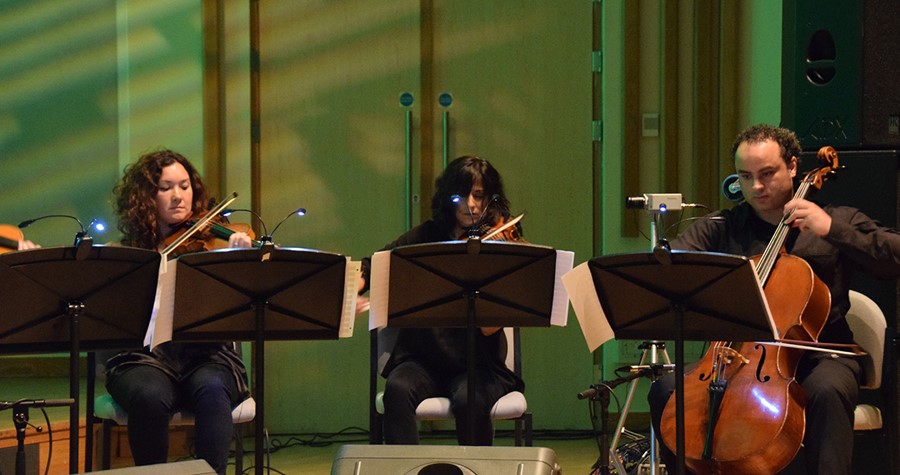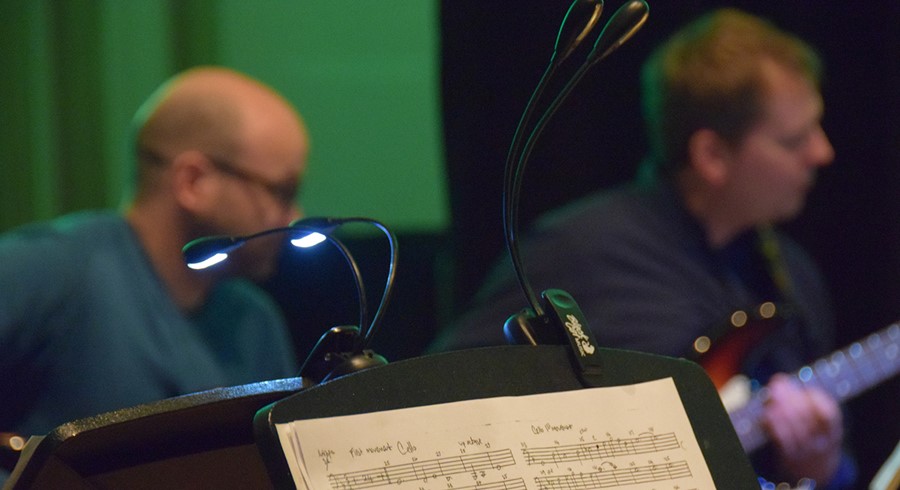Graphene Suite – where art meets materials science
At Graphene Week 2015 in Manchester yesterday, delegates and others were treated to the premiere of a musical suite by Sara Lowes, composer-in-residence at the National Graphene Institute. Sara’s Graphene Suite was commissioned by Brighter Sound, a Manchester-based producer of creative music projects and other cultural events.
Graphene Suite is scored for a somewhat unusual combination of musical forces, with a string quartet joined by oboe, trumpet, percussion, electric bass guitar, electric guitar and electronic keyboards. Strong visual effects accompanied the musical performance, with electronically manipulated video images of the musicians projected onto a screen behind the stage. For the Graphene Week participants present, the music was a welcome cultural complement to an intense programme of science-centred events.
The Graphene Suite has six movements, and the number six features strongly in the structure of the piece. Here it is sufficient to say that the performance was for this scientist-writer and sometime musician utterly fascinating. In technical terms the music is electro-acoustic, but at the same time Sara’s compositional style is traditional. It is also strongly melodic.
Immediately following the concert I conducted a video interview with the composer, focussing on her music, her experience of the graphene science community, and the nature of and similarities between art and science as creative processes.
In 1959, British scientist, civil servant and novelist CP Snow spoke of a gulf between science and art. Today there do not exist “Two Cultures”. There is but one culture, it takes many and various forms, and science and engineering are integral to it.
Video: copyright © 2015 Karin Weijdegård, Chalmers University of Technology
Photos: copyright © 2015 Anders Frick, Chalmers University of Technology





